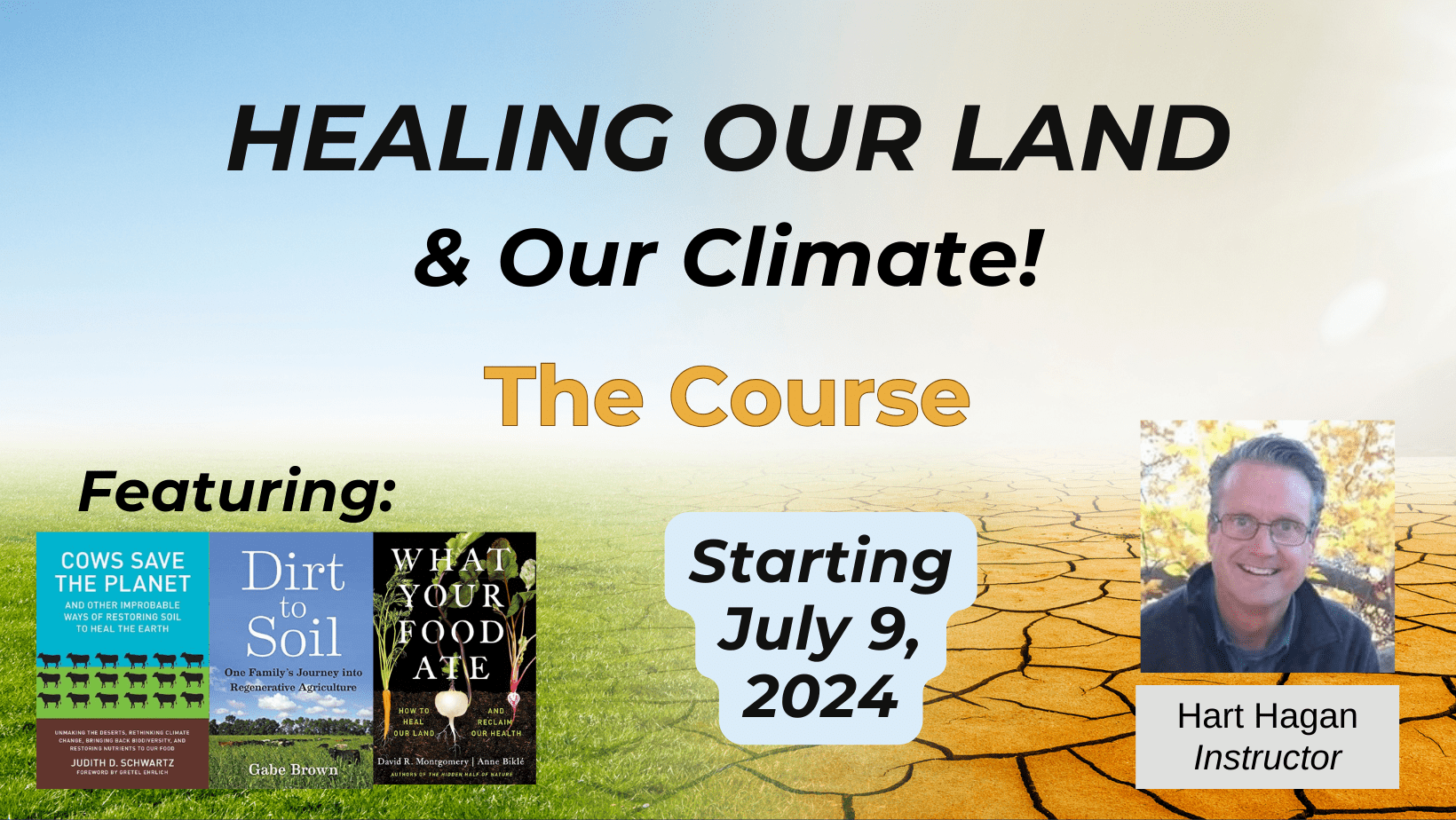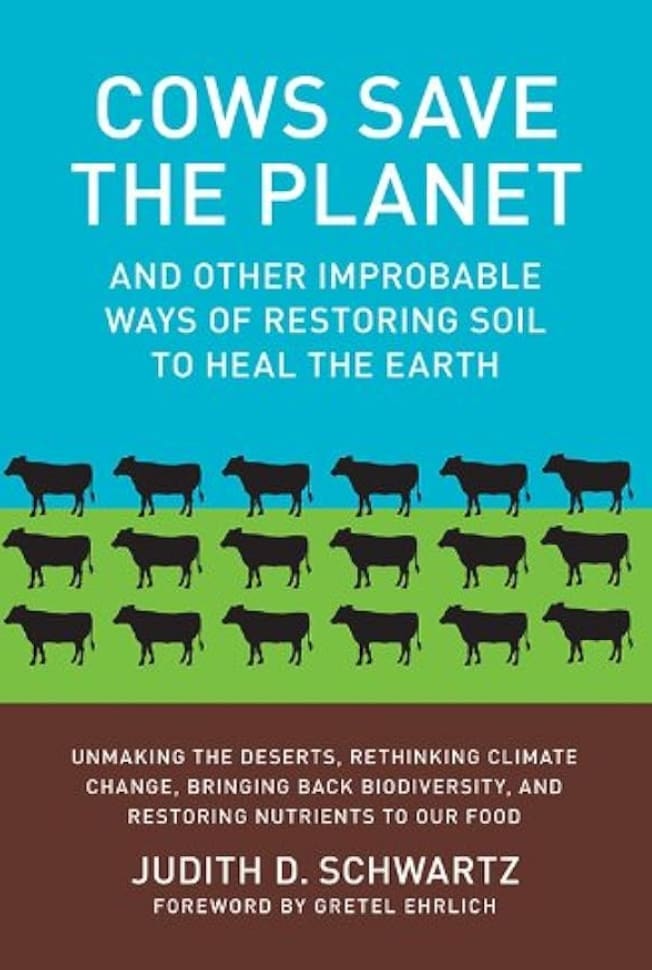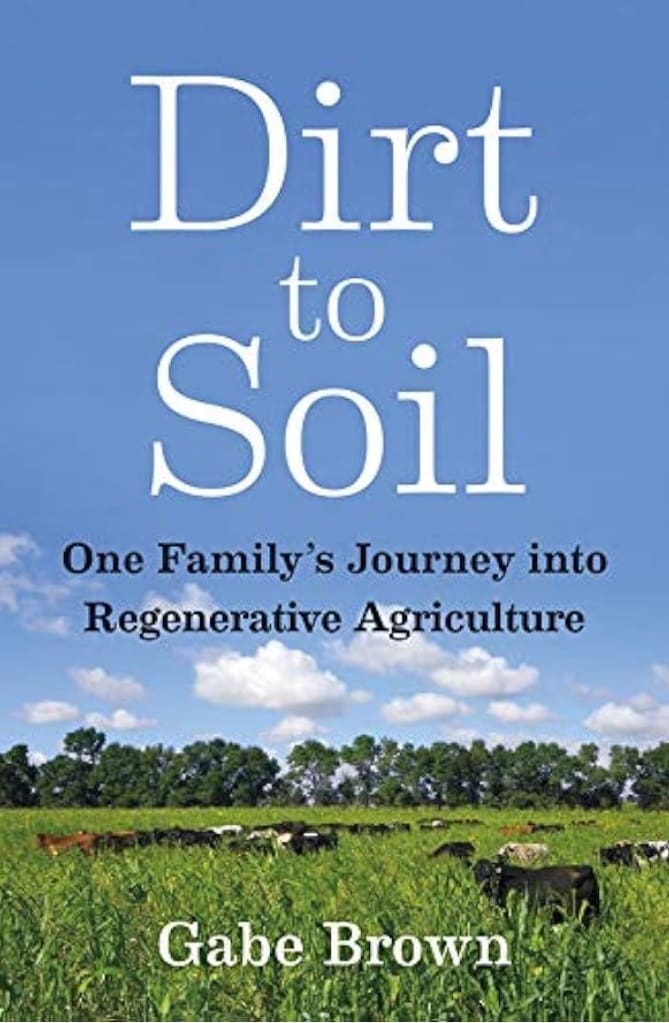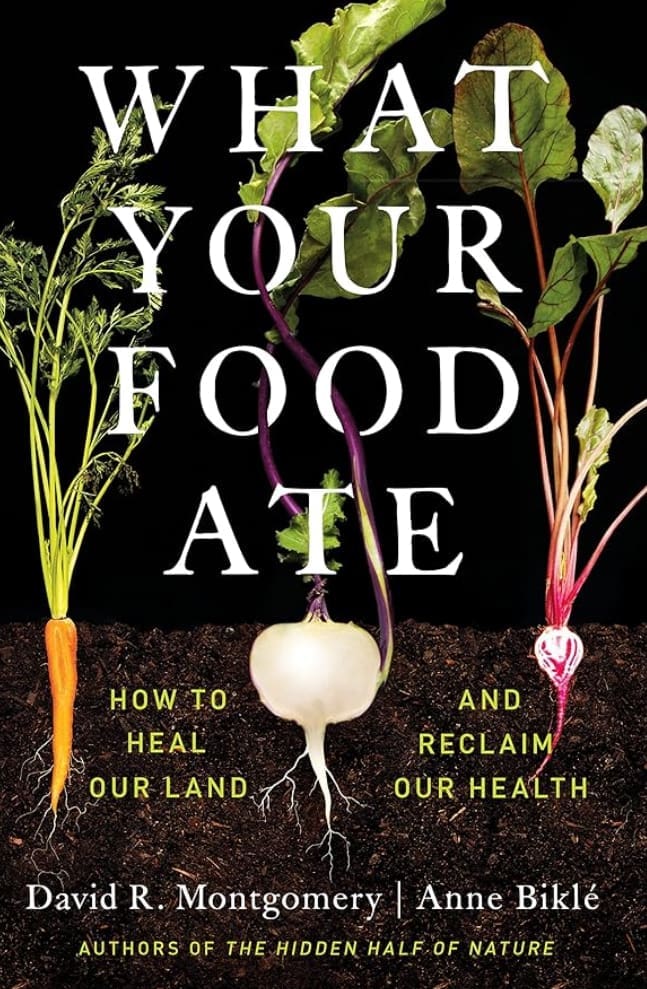Healing Our Land & Our Climate!
July 9 – September 24, 2024
Tuesdays: 12 noon -or- 7 pm ET
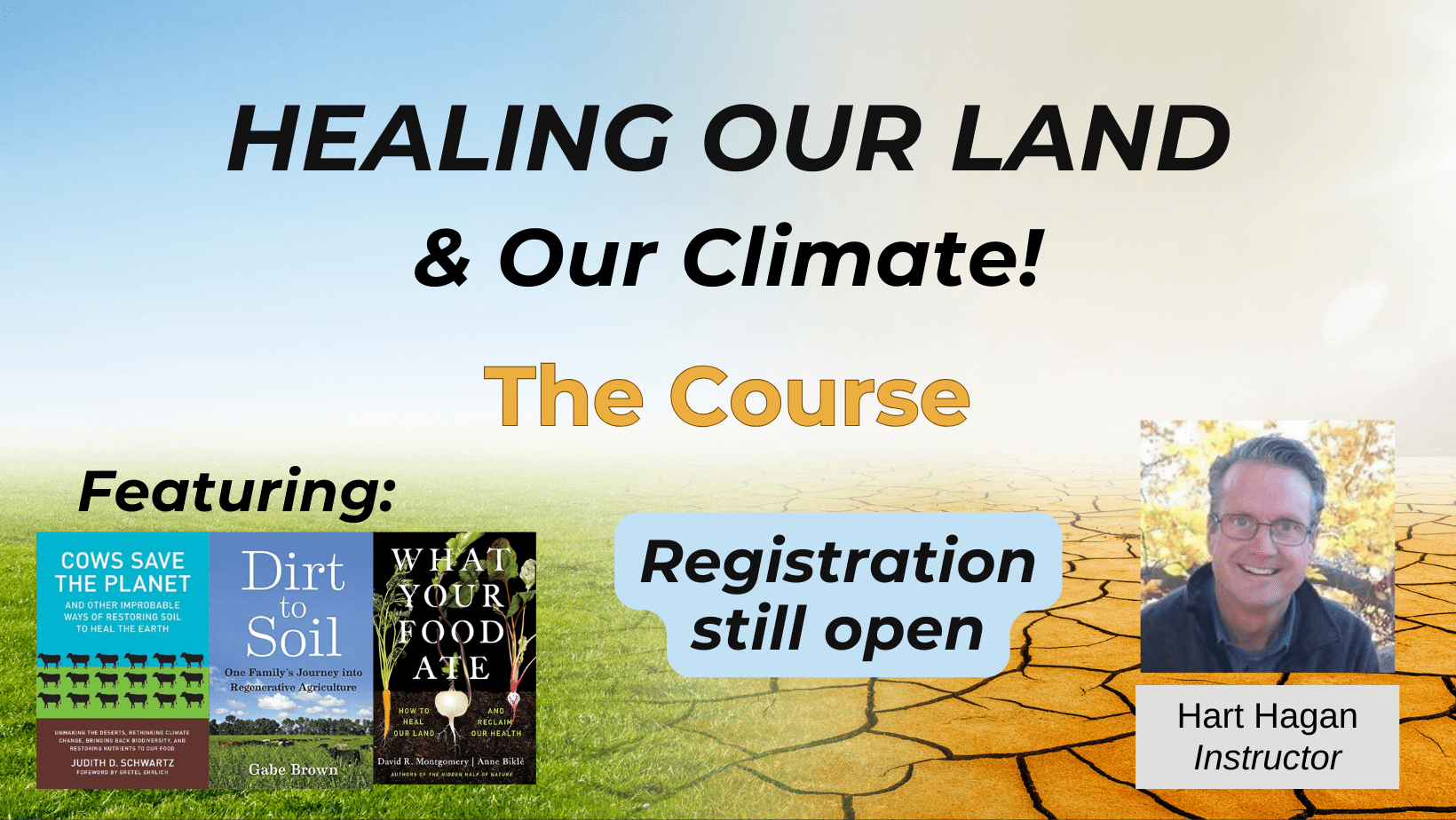
What if we could deal with the causes of climate change and at the same time deal with its effects? What if we could prevent flooding, drought and wildfires and at the same time cool our climate quickly and safely? And what if we could start this process in our own home landscape, where we don’t have to wait for a change in government policy?
In Healing Our Land & Our Climate (The Course), we are exploring how gardeners, landowners, farmers, ranchers and foresters around the world are restoring ecosystems and producing healthy food for humans and our fellow species, while simultaneously cooling their local environment.
Restoring healthy soil and ecosystems can also prevent flooding, drought and wildfires, remove carbon from the atmosphere, and deliver nutrients to our plants, making them healthy, resilient and nutritious. Discover how to make the soil healthy, how healing the land increases our access to clean water and increased food security in our communities, and how you can implement or advocate for these critical solutions to restore a livable climate.
Finally, we will explore communication strategies we can use to become effective at sharing these solutions in our conversations with others.
There’s still time to register using the link below. Sign up today.
Format
The course starts on July 9 and runs for twelve weeks until September 24, 2024. Classes are on Tuesdays on Zoom for 90 minutes each week. To accommodate participants’ schedules, you can attend the session from 12:00 noon – 1:30 pm ET or from 7:00 – 8:30 pm ET. The classes will be recorded and the recordings will be made available each week.
During the classes, Hart will host brief presentations, discuss the readings and videos, show you how to apply what you are learning in your own personal or professional life, and discuss effective communication strategies for sharing these solutions in your conversations with others.
Author Judith Schwartz will join us as our guest to discuss her book Cows Save the Planet and the critical lessons she has learned as an author of three books on how to heal the Earth and stabilize the climate. You will also connect with other course participants during the classes, and there are opportunities to connect in between classes as well.
Course Description
This course will explore the many ways to restore the land and the many benefits of healthy soil. This includes the power of healthy soil to prevent flooding, drought & desertification, remove carbon from the atmosphere and deliver nutrients to our plants, making them healthy, resilient and nutritious.
This course is for you if you want to learn …
- How to restore our ecosystems as a major way of addressing climate change.
- Why and how healthy soil and healthy forests, wetlands and grasslands can prevent both flooding and drought.
- Why and how to grow food organically.
- How to communicate effectively as an advocate for healthy soil and ecosystems.
We will mine the riches of Cows Save the Planet by Judith D. Schwartz which, as the subtitle of the book states, will educate us on “Unmaking Deserts, Rethinking Climate Change, Bringing Back Biodiversity and Restoring Nutrients to Our Food.” During the course, we will read and discuss one chapter of the book each week, studying how carbon and water flow through our ecosystems, how forests nurture our water cycles, and how ecosystems and water cycles impact our climate. We will learn that how we treat our land largely governs our climate.
We will review case studies throughout the world to provide real-life, practical examples of these principles:
- Our deserts used to be grasslands. What happens when you take a desert and turn it into a grassland? It cools down and becomes habitat for wildlife, including migratory birds. We will visit (via video) Alejandro Carillo, who owns 30,000 acres in the Chihuahua region of Mexico and is rapidly turning the desert back into the grassland it once was. This is exactly what our climate needs, especially since the Western U.S. is rapidly becoming a desert.
- We will travel (virtually) to China to study the work of journalist-turned-ecologist John D. Liu, who witnessed the transformation of the Loess Plateau. This region had been the cradle of Chinese civilization, but because of destructive land management practices, it became a barren desert by the 20th century and home to misery and poverty. Through John’s documentary work and the reporting of author Judith Schwartz, we will see the transformation of the Loess Plateau and millions rising out of poverty. This transformation cost only a few dollars per acre per year.
- We will study the work of Allan Savory, who started as a Rhodesian wildlife conservationist and ended up as the world’s most famous–in some circles infamous–advocate for cattle ranching. After years of close observation and devastating mistakes, Savory concluded that–far from having too many animals–the grasslands of the world did not have enough animals, including large herbivores such as cattle and sheep. Savory pioneered a management philosophy known as Holistic Management, whose practitioners currently manage over 75 million acres per year, according to the Savory Institute.
Using the bestselling book Dirt to Soil, we will study the Five Principles of Soil Health developed by author Gabe Brown and we’ll explore how to make soil healthy. Gabe is a North Dakota farmer whose book tells the story of his family’s journey out of chemically intensive agriculture and into farming methods that are respectful of our ecosystems. After several consecutive years of bad luck, Gabe and his family could no longer afford expensive chemical fertilizers, so Gabe had to learn how to build soil fertility by nurturing the biological fertility in the soil. This turned out to be good for the soil and good for the profitability of Gabe’s farming operation.
We will also study specific components of the book What Your Food Ate, by David R. Montgomery and Anne Biklé, to learn how to restore the nutrients in our food by restoring the nutrients in our soil. This book is as well written as it is well researched. Montgomery and Biklé will teach us how healthy soil creates healthy plants and nutritious food while keeping our water clean. Conversely, they will teach us–specifically–how tillage, chemical fertilizers and toxic pesticides are bad for soil, water, livestock, other species and human health.
Additional course materials will include carefully selected videos, such as Treating the Farm as an Ecosystem, featuring Gabe Brown and How Plants Cool the Planet, by Jimi Eisenstein.
Finally, as we come to a greater understanding of how to heal our land and our climate, we will explore several communication strategies during the course so we can become effective advocates of these critical solutions in our conversations. You will have the option (if you choose) to strengthen your skills and “practice your pitch” in short practice sessions during or in between classes.
Your Instructor
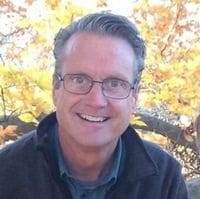
Hart Hagan is an environmental reporter who has produced nearly 400 radio shows and over 250 videos since 2018. He is the founder of Water & Climate, a Facebook group with over 4,500 members. Six years as a climate reporter has led him to focus on the value of ecosystems and water cycles as a key driver of climate, and the primary means of curbing extinction and providing habitat for our fellow species. Hart has also studied marketing and communications extensively and has begun training environmentalists and climate activists in a program he calls Practice Your Pitch.
Hart is passionate about educating people that in order to understand flooding, drought, heatwaves and wildfires, we must look beyond CO2 and examine how we treat our land. He is an avid gardener with a focus on native wildflowers and creating landscapes that capture all the rainfall.
To review and subscribe to Hart’s important work, visit his:
YouTube Channel: @harthagan23
Blog on Substack: harthagan.substack.com
Facebook Group: Water & Climate
The Primary Books Used in the Course
- Cows Save the Planet: and Other Improbable Ways of Restoring Soil to Health the Earth – by Judith D. Schwartz (2013)
- Dirt to Soil: One Family’s Journey into Regenerative Agriculture – by Gabe Brown (2018)
Supplemental Book Used in the Course
- What Your Food Ate: How to Heal Our Land and Reclaim Our Health – by David R. Montgomery and Anne Biklé (2022)
Whether this is your first course or your tenth course, please join us if you are curious about nature and its power to restore the soil and other ecosystems to abundance. Everyone has much to learn and share, and there is much to be done. We are all on a journey of expanding our knowledge on nature’s climate solutions, and we each bring something valuable to the conversation.
If you have any registration or general course questions, email us at staff@bio4climate.org. If you have specific questions about the course for Hart Hagan, you can contact him at nhhagan@gmail.com.

